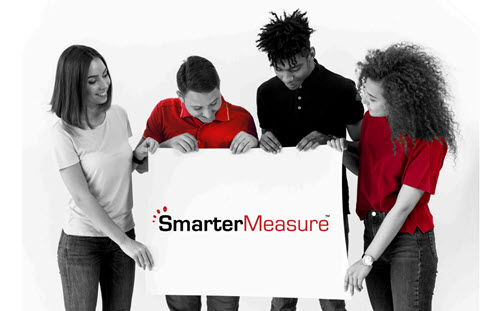PITTSBURGH, PA – It goes without saying that the COIVD-19 pandemic has impacted higher education and students across the globe. But to what degree? And how can institutions respond to the shifts in learning? SmarterServices recently published data that reveals both individual and technical skills have been impacted by the COVID-19 pandemic and the degree to which learner readiness has changed over the past ten years. Learner readiness has seen statistically significant changes and institutions may need to reevaluate their programming to improve student success.
Data on how COVID-19 has impacted learner readiness comes out of the National Readiness Report, published by SmarterServices. The report provides measures of central tendency for learner traits such as life factors and individual attributes as well as several skill sets, including on-screen reading rate and recall, technical competency, learning management system competency, general technical knowledge, and keyboarding rate and accuracy.
The attributes and skills are measured by the SmarterMeasure Learning Readiness Indicator, which has been taken by over 6 million learners from over one thousand institutions. Through the National Readiness Report, institutions can compare the performance of their students to those of other students nationally. This year’s report reviews multiple comparisons of readiness levels within several demographic categories, a four-year comparison to determine the impact of the pandemic on learner readiness, and specifically how the COVID-19 pandemic impacted learner readiness over the quarantine period.
The quarantine period occurred mostly during the academic year of 2019/2020 and forced many institutions to halt in-person classes and move a considerable amount of instruction online. This shift meant students who did not already engage in online learning were constrained to learn by an online learning modality. According to the data, of the eight scales measured by the assessment on a percentile basis, the means declined for eight of them during the quarantine period. The only scale that saw an improvement in the mean score was LMS Competency. The rate of decline is listed below.
- Math Readiness – 4.67
- Writing Readiness – 4.15
- Technical Knowledge – 2.47
- Reading Recall – 1.73
- Technical Competency – 1.72
- Individual Attributes – 1.38
- Life Factors – .53
During the quarantine year of the pandemic, the SmarterMeasure Learning Readiness Indicator was taken more than ever before. The diminished level of learner readiness reported by the assessment coupled with the inferior quality of emergency remote instruction when compared to traditional online learning prompted concern about the efficacy of academic continuity efforts during the pandemic.
“This data is very telling of the current state of higher education and its students,” SmarterService Founder and Chief Academic Officer, Dr. Mac Adkins, said. “This data underscores the fact that learner readiness for online instruction continues to matter. During the year in which many students were prompted to study online and this modality was not their first choice, levels of readiness substantially decreased. The takeaway for higher ed leaders is that moving forward we must assist learners in going into the online or technology-rich learning environment with their eyes wide open about their own attributes, skills, and habits and how these will impact their learning experience. It is important that institutions utilize this data from SmarterServices. We are the only organization that has this cumulative data on how COVID-19 has impacted learner readiness which directly impacts student success.”
The report also revealed mean scores on the Life Factors and Individual Attributes scales have consistently declined over the past four years by about two percentage points. This is a substantial observation since these scales measure learner attributes, not skills. These measurements are not delivery system dependent, meaning they are equally important for students studying online, hybrid, or face-to-face. It is paramount that institutions measure this data for all students and provide appropriate strategies for intervention and support since students are struggling more in these areas than in the past.
In response to declining learner attributes, schools need to provide strong services such as admissions coaching, academic advising, and mental health services to support learners. To counter declining technology skills, schools need to recognize that even though social media and video streaming may be dominant parts of learners’ lives, information technology skills are often lacking. Schools need to provide training to strengthen students’ online learning strategies. This training should appear in orientation courses and new student onboarding programs. Elements of these programs need to be not only about “how to learn online” but “how we do online learning at this institution.”
To download your own copy of the report here. Finally, to learn more about the SmarterMeasure Learning Readiness Indicator and how it can be utilized to help students emerge from the pandemic, click here.
About SmarterServices:
SmarterServices is a full-spectrum assessment services company that solves unmet market challenges facing learners, instructors, institutions, and organizations by developing unique educational technology solutions to improve a learner’s success. With over 150 years of combined experience in higher education and tools like SmarterProctoring and SmarterMeasure, they equip schools with the necessary tools needed regarding student readiness, testing, and integrity. Learn more at www.smarterservices.com.


:max_bytes(150000):strip_icc()/Health-GettyImages-1342980570-80531d9053c343799c89a6dbe9fcb768.jpg)


